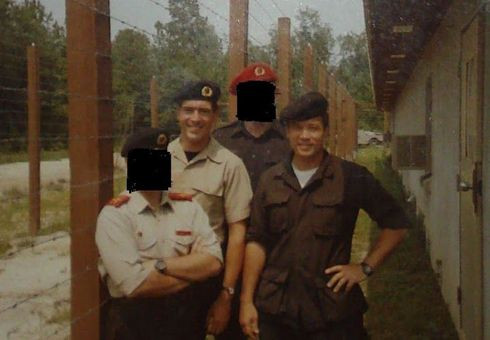Who Are Jim Mitchell And Bruce Jessen? CIA Torture Psychologists Were Experts In Communist Chinese Interrogation

The architects behind the U.S. Central Intelligence Agency’s brutal torture program were two retired Air Force psychologists considered masters in the art of coercion. Jim E. Mitchell, 63, and Bruce Jessen, 65, were paid upward of $80 million by the U.S. government to devise America’s boldest and most controversial counterterrorism operation in the country’s history that included methods such as mock burials, "rectal feeding" and waterboarding, according to a Senate report released Tuesday. Some of their methods -- based on Korean War-era interrogation tactics used by Chinese Communists -- were even too gruesome for the CIA.
Neither man had ever carried out a real interrogation, had language skills or expertise on al Qaeda – the chief enemy in the war on terror – when the CIA handpicked Mitchell and Jessen to spearhead its supposed intelligence gathering program shortly after the Sept. 11, 2001, terrorist attacks. Their psychology backgrounds were in family therapy; their Ph.D. dissertations were on high blood pressure. The CIA’s methods were described in detail following a five-year investigation by the U.S. Senate Select Committee on Intelligence.
"Our goal was to reach the stage where we have broken any will or ability of subject to resist or deny providing us information (intelligence) to which he had access," Mitchell and Jessen said in a cable published in the report. Not everything the psychologists proposed was approved, however. The CIA rejected the idea of mock burials, among other methods, according to the Senate investigation.
The torture plan mirrored ruthless interrogation techniques used by Chinese Communists to strong-arm false confessions from U.S. prisoners during the Korean War, according to a 2009 report by the New York Times. The admissions were used as propaganda and led to accusations of communist “brainwashing.”
Mitchell and Jessen's catalog of 10 “enhanced interrogation techniques” included sleep deprivation, prolonged constraint, slapping, waterboarding and even insects. Mitchell participated in one of the CIA's first Mitchell-Jessen-style interrogations involving Abu Zubaydah, considered al Qaeda's No. 3 man, in 2002, according to the Times.
While the report only referred to the two psychologists via pseudonyms – Grayson Swigert and Hammond Dunbar – previous reports identified Mitchell and Jessen, whose consulting company Mitchell, Jessen & Associates was contracted by the CIA in 2005 to take over its secret prison program, as its masterminds. “The whole intense interrogation concept that we hear about, is essentially their concepts,” Col. Steven Kleinman, an Air Force interrogator, told ABC News in 2009.
Mitchell joined the U.S. Air Force in 1974, where he became a bombs expert and earned two psychology degrees. He later completed his doctorate at the University of South Florida in 1986, where he studied the roles of diet and exercise in regulating hypertension. He returned to the Air Force two years later.
Meanwhile, Jessen, who grew up in Idaho, was steadily moving up the military ranks as a psychologist with the Air Force Survival School in Spokane, Washington, a program established in the 1960s to train airmen and women dropped behind enemy lines in how to avoid detection and survive off the land, according to the Times. The program, known as Survival, Evasion, Resistance, Escape, or SERE, aimed to give Air Force members an idea of the enemies’ brutal methods. When Jessen was promoted to a top psychologist’s position at the school’s graduate sister school, he was replaced by Mitchell.
During his years with the SERE program, Jessen taught a class on “coping with isolation in a hostage environment,” a main component of the training, according to an investigation by Salon in 2007. Mitchell’s expertise was in bringing prisoners to the point of “helplessness.”
“The irony — and ultimately the tragedy — in the migration of SERE techniques is that the program was specifically designed to protect our soldiers from countries that violated the Geneva Conventions,” Brad Olson of the American Psychological Association, told Salon. “The result of the reverse-engineering, however, was that by making foreign detainees the target, it made us the country that violated the Geneva Conventions.”
Neither psychologist has publicly expressed regret for the program they orchestrated. Mitchell on Tuesday defended the CIA interrogations and accused the Senate of releasing the report for political reasons. "I think it's despicable that they cherry-picked all of that stuff," Mitchell told ABC News. "There were a lot of men and women in the CIA who put their lives on the line, and some of them died after 9/11 protecting the United States. And to suggest that they lied to the president, that they lied to the Senate, that they falsified intel reports so they could make a program look better than it was, is despicable."
© Copyright IBTimes 2024. All rights reserved.





















